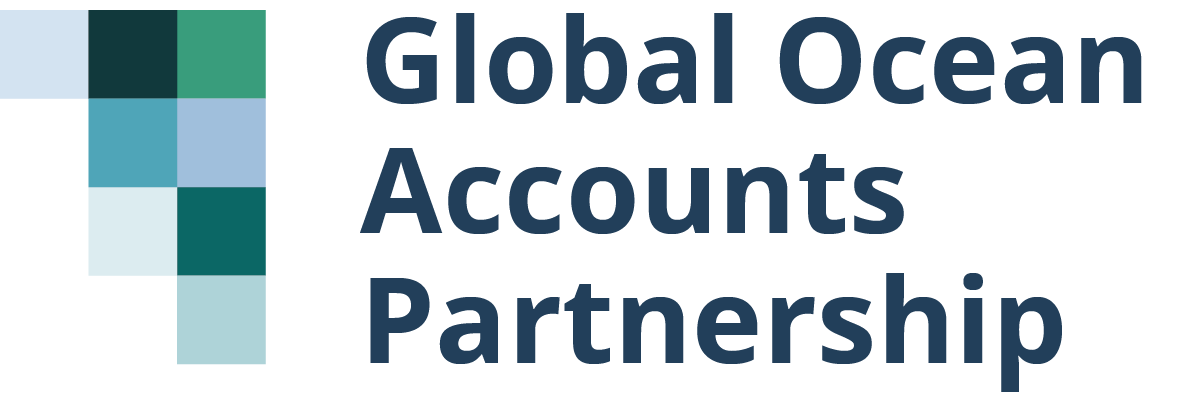Ocean Accounts Fellows
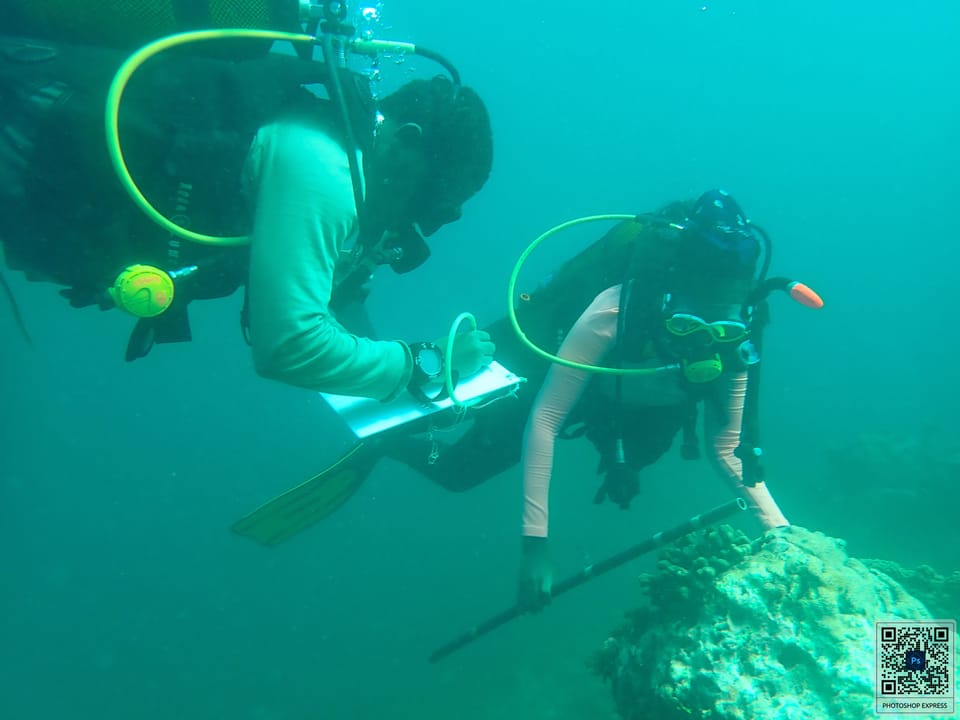
The Ocean Accounts Fellows Program is an interdisciplinary initiative that brings together practitioners from Africa, Asia, the Pacific and Latin America and the Caribbean, with the aim of enhancing sustainable ocean development, ocean governance and coastal resilience through innovative research. With supervision provided by the Global Ocean Accounts Partnership (GOAP) Secretariat, the program encompasses a diverse range of projects. These include critical analyses of legal frameworks for Marine Spatial Planning (MSP), the utility of Earth observation techniques for ocean accounting, socio-ecological resilience monitoring, and the integration of ocean accounting into marine conservation and economic policy development.
Each fellow, whether engaged in government, academia, or on-the-ground research, contributes to a collective goal of fostering sustainable marine resource management, promoting economic growth, and preserving environmental integrity through informed policy and legal frameworks.
Africa

Dr Juliet Karisa
Ocean Accounts Fellow - Coral Reef Ecologist and Conservationist
Pwani University and Kenya Marine and Fisheries Research Institute (KMFRI)
Monitoring the Socio-Ecological Resilience of Coastal Communities to Coastal Changes in Kilifi County, Kenya
Dr. Karisa's project is focused on spatial delineation to understand the extent, current condition, and changes in the condition of coral reefs along the Kilifi County coast. It also aims to delineate the ecosystem services and dependency of coastal communities on these services, with a focus on identifying spatial distribution of vulnerable communities and their adaptation strategies. Another key aspect of the project is to identify coastal land use and land cover changes, emphasizing built-up areas and agricultural zones. The research is geared towards enhancing coastal management strategies through integrated ocean accounting and developing tools for measuring coastal resilience.

Dr Yvonne Waweru
Ocean Accounts Fellow - Ocean Governance
Nelson Mandela University (based in Kenya)
A Critical Analysis on Legal Ocean Accounting for the Development and Implementation of Marine Spatial Planning in Kenya
This project aims to explore the integration of legal components within ocean accounting frameworks to assess and enhance the effectiveness of Marine Spatial Planning (MSP) in Kenya. Specifically, the research will examine how incorporating legal frameworks within ocean accounts can address the fragmentation of laws, regulations, and management practices that currently govern Kenya's territorial waters and Exclusive Economic Zones (EEZ). This analysis seeks to identify gaps, conflicts, and potential for harmonization within existing legal instruments to support coherent and effective MSP development and implementation. By doing so, the project endeavours to contribute to sustainable ocean governance in Kenya, ensuring economic growth, job creation, and environmental preservation are achieved through informed and integrated legal and policy approaches.

Dr Pascal Thoya
Ocean Accounts Fellow
Pwani University and Kenya Marine and Fisheries Research Institute (KMFRI)
Demonstration of the Utility of Earth Observation Techniques in Kenyan Ocean Accounting
This project aims to leverage Earth observation techniques to advance ocean accounting in Kenya. It focuses on a comprehensive assessment of the use and value of ocean resources, with a particular emphasis on mangroves, coral reefs, and seagrass. The project seeks to contribute to effective marine spatial planning in Kenya and enhance the understanding of ocean accounting that can be integrated into the Nationally Determined Contributions (NDCs) framework.

Tsiresimiary Mandimbilaza
Ocean Accounts Fellow - Master’s candidate
Institut Halieutique et des Sciences Marines, University of Toliara, Madagascar
Coral extent and condition of the Coral Reef systems off the southwest coast of Madagascar
This research aims to enhance ecosystem accounting methodologies by integrating in situ validation techniques to improve the accuracy of ecosystem maps derived from satellite imagery and assess the spatiotemporal dynamics of coral reef conditions. By combining field data collection, drone-based aerial imaging, and in situ ecological monitoring, the project will optimize the reliability of remote sensing models applied to the mapping of benthic and coastal habitats. Furthermore, it will incorporate analyses of community resource use, tracing historical changes in coral cover, reef ecological integrity, and dependence on ecosystem services. The findings will contribute to the development of strategic recommendations for the sustainable management of marine ecosystems, ensuring the integration of scientific data and local knowledge into conservation policies.

Dr Nandrasa Tiava
Ocean Accounts Fellow - Economist
Institut Halieutique et des Sciences Marines, University of Toliara, Madagascar
Developing National Ocean Economic Satellite Accounts for Madagascar
This project focuses on the development of Ocean Economy Satellite Accounts (OESA) for Madagascar, addressing the critical need to integrate ocean-based economic activities into national economic frameworks. The project will assess the value of ecosystem services, formulate ocean economy indicators, and provide data-driven insights for policy development. These efforts will support evidence-based ocean governance, strategic investment planning, and the integration of marine resource management into Madagascar’s national economic policies and sustainable development strategies.

Yves Amoros Mitondrasoa
Ocean Accounts Fellow - Remote Sensing and Coral Reef Mapping Specialist
Institut Halieutique et des Sciences Marines, University of Toliara, Madagascar
Remote Sensing and Earth Observation for Mapping Coral Reef Systems in Southwest MadagascarAccounting
This project aims to enhance the mapping and monitoring of coral reef ecosystems along the southwest coast of Madagascar using high-resolution satellite imagery, drone-based surveys, and advanced classification techniques. As part of the OASIS-M initiative, the research will contribute to the System of Environmental Economic Accounting – Ecosystem Accounting (SEEA-EA) framework by generating accurate ecosystem extent maps. The study will integrate Sentinel-2 remote sensing data, Object-Based Image Analysis (OBIA), and in situ ground-truthing to refine coastal and benthic habitat classification. These ecosystem accounts will support sustainable ocean planning, marine spatial management, and national blue economy strategies. By bridging scientific data with governance needs, the project aligns with ocean accounting principles, ensuring the integration of ecosystem information into Madagascar’s National Accounts System for improved marine conservation and policy decision-making.

Advancing National Ocean Economic Satellite Accounts in Ghana
There is an identified increasing need for the development of ocean economy satellite accounts (OESA) in African coastal nations including Ghana. Resultant outputs from an OESA process provide the economic information required by governments and government agencies to both measure and grow the ocean economy and for inclusion of economic information into informed and evidence ocean governance processes, including in strategic investment planning and the development of ocean macroeconomic indicators. However, there are capacity gaps within government agencies in many of these countries which is a limitation to the development and uptake of these statellite accounts as well as their integration into decision-making processes. The project is a partnership between ACECoR and the Ghana Statistical Services to enhance ocean accounting capacity within government agencies by advancing national economic oceans accounts. This includes policy diagnostic, mapping of relevant sectors, scoping of national oceans accounts to support government priorities, hosting workshops with government stakeholders to share knowledge and facilitate government engagement. Akua has worked on climate change and gender policies for over 7 years. She brings on board her expertise in coordinating engagement with government and other stakeholder institutions, managing mangrove restoration and land evaluation.

Kwadwo Agyenim-Boateng
Ocean Accounts Fellow - Master's Candidate
Centre for Coastal Management, University of Cape Coast, Ghana
Assessing Mangrove Ecosystem extent and conditions in Keta Ramsar Site, Ghana
This study assesses the extent, health, and future trajectory of mangrove ecosystems within the Keta Ramsar Site, Ghana, using an integrated approach that combines remote sensing, field-based assessments, and predictive modelling. Mangrove extent and canopy cover dynamics from 2015 to 2024 will be analysed using Sentinel-2 and drone imagery, with the Normalized Difference Vegetation Index (NDVI) applied to assess vegetation condition. Land use and land cover (LULC) changes will be mapped using Google Earth Engine (GEE) to understand the drivers of mangrove degradation. Future mangrove distribution (2030–2040) will be projected using Land-Use Change Models (Markov Chain, CA-ANN) and the Sea Level Affecting Marshes Model (SLAMM) to evaluate the potential impacts of sea-level rise. Additionally, biomass estimation will be conducted through allometric equations and field-based measurements to quantify carbon sequestration potential. By bridging critical gaps in scientific research and governance, this study aims to enhance mangrove conservation strategies and support ocean sustainability initiatives.

Integrating Ecosystem Services and Socioeconomic Dynamics into Ocean Accounts: A Case Study of Mangrove Ecosystems in Keta Ramsar Site, Ghana
This study integrates ecosystem services and socioeconomic dynamics into ocean accounts using the Keta Ramsar Site in Ghana as a case study. This research is grounded in the framework of the System of Environmental-Economic Accounting (SEEA), which links ecological and economic data to inform sustainable resource management. The study employs remote sensing to map mangrove extent, biomass assessments to estimate carbon sequestration (Blue Carbon), and household surveys and participatory mapping to evaluate provisioning, regulating, supporting, and cultural ecosystem services. Additionally, value chain analysis and scenario modeling are used to examine the economic impact of mangrove degradation versus conservation. Findings will inform policy interventions, governance frameworks, and sustainable management strategies, strengthening the role of mangroves in climate resilience and local livelihoods. This research contributes to strengthening ocean accounting frameworks by incorporating both ecological and socioeconomic values, providing a data-driven approach for sustainable coastal ecosystem governance.
Asia

Dr Randika Jayasinghe
Ocean Accounts Fellow - Plastic and Waste Specialist
Global Ocean Accounts Partnership (GOAP) Secretariat (based in Sri Lanka)
Managing data on plastics for data-driven decision making for managing marine pollution
Randika has over 13 years of extensive experience in the environmental field, specializing in plastic waste management, circular economy, recycling, and upcycling. After earning her Ph.D. from the University of Western Australia, focusing on value addition to plastic waste in Sri Lanka, she nad her PhD supervisor secured a prestigious Global Partnerships for Development grant. This enabled her to lead a three-year project fostering community-based waste recycling businesses through university partnerships in Sri Lanka. Her expertise has been further enriched through collaborations with international organizations like Australian Aid, USAID, GIZ, and UNEP, as well as contributing as a primary author to Sri Lanka's National Waste Management Action Plan. With a strong background in academic lectures, workshops, data analysis, technical report writing, policy analysis, and stakeholder engagement across universities, government, and industries, Dr. Jayasinghe brings a unique combination of research excellence and practical implementation experience in driving sustainable waste management solutions.

Dr. Cheryl Joy J. Fernandez-Abila
Ocean Accounts Fellow - Economist
Global Ocean Accounts Partnership (GOAP) Secretariat (based in Philippines)
Advancing ocean accounts for sustainable blue economies in Southeast asia and the pacific
With over 17 years of teaching experience at the University of the Philippines, she has taught economic analysis, quantitative methods, and public economics, as well as multidisciplinary courses on protected area management and governance. Her research focuses on small island tourism, conservation of endangered species, disaster valuation, reef resilience, and the economic potential of the blue economy. Cheryl has collaborated with international organisations, governments, and research institutions on sustainability-focused initiatives. She has led and co-led projects funded by the United Nations (UN), Asian Development Bank (ADB), Luxembourg Government, Agence Française de Développement, among others. Her work integrates economic insights with environmental and policy applications, contributing to global discussions on sustainable livelihoods, climate resilience, the blue economy, and economic policy for natural resource conservation.

Hadi Yoga Dewanto
Ocean Accounts Fellow - PhD Candidate
Global Ocean Accounts Partnership (GOAP) Secretariat (based in Indonesia and Australia)
Mainstreaming Ocean Accounting for Enhanced Governance in the areas beyond national jurisdiction of the Indian Ocean
Yoga will research the adoption of Ocean Accounting (OA) as a tool for improving ocean governance in the Marine Areas Beyond National Jurisdiction (ABNJ) of the Indian Ocean. By investigating the application possibilities and challenges of OA, identifying conducive institutional and legal frameworks, developing a systematic OA implementation strategy, and providing actionable recommendations, the study seeks to contribute to the effective management and conservation of marine resources in the ABNJ, ensuring their sustainable use for the benefit of global and regional communities. Before his studies, Yoga was a Senior Marine Ecosystem Services Analyst at the Indonesian Ministry of Marine Affairs and Fisheries. With more than 10 years of service at the Ministry, Yoga has been involved in formulating science-based government policies and Indonesian country reports in multilateral conventions related to marine conservation.

Shan Ahmed
Ocean Accounts Fellow - Environmental Scientist and Geospatial Expert
Ministry of Climate Change, Environment, and Energy
Natural Capital Accounting in the Maldives
Ahmed Shan is an experienced environmental scientist and geospatial expert with nearly two decades of experience in environmental research, conservation, and surveying. Currently serving as a Senior Surveyor at the Ministry of Climate Change, Environment, and Energy in the Maldives, Shan has led significant initiatives including the Baa Atoll UNESCO Biosphere Reserve Ten Year Review. His work spans coastal zone monitoring, protected area management, and climate resilience initiatives across multiple atolls in the Maldives.
His project focuses on integrating Natural Capital Accounting in the Maldives, leveraging his extensive experience in environmental assessment and geospatial analysis to support sustainable resource management and conservation policy. By applying spatial science to environmental challenges, Shan aims to drive data-informed decision-making that balances ecological protection with development needs in this vulnerable island nation.
Latin America and the Caribbean
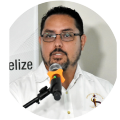
Jefte Abivadab Jair Ochaeta
Ocean Accounts Fellow - Senior Statistician
Statistical Institute of Belize
Advancing Ocean Accounting for Sustainable Blue Economy Development in Belize
Jefte serves as the lead fellow for Belize in the development of Ocean Accounts, contributing to the implementation of the System of Environmental-Economic Accounting (SEEA) to support integrated ocean governance and sustainable development. His work focuses on applying the SEEA Central Framework and SEEA Ecosystem Accounting to capture the interactions between the economy and the marine environment. Jefte has over 17 years of experience in official statistics, macroeconomic indicators, and data innovation.
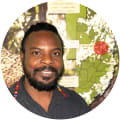
Wilbert CASTILLO
Ocean Accounts Fellow – Marine Biologist
University of Belize - Environmental Research Institute (UB ERI) Belize
Advancing Ocean Accounting for Sustainable Blue Economy Development in Belize
Wilbert contributes to Belize’s national efforts to conserve and sustainably manage marine ecosystems. His role focuses on leading in-situ data collection and validation for coral reef extent and condition, supporting the development of the country’s first ocean accounts. This includes refining field protocols to ensure consistency and data quality, aligned with the SEEA Ecosystem Accounting (SEEA-EA) framework. This work forms part of a national initiative, led by the Ministry of Blue Economy and Marine Conservation, to pilot and institutionalise ocean accounts in Belize.
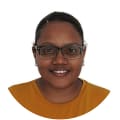
Caisha Fermin
Ocean Accounts Fellow - Data Management and Hosting
Coastal Zone Management Authority and Institute (CZMAI), Belize
Advancing Ocean Accounting for Sustainable Blue Economy Development in Belize
Caisha contributes to Belize’s national efforts to institutionalise ocean accounting through enhanced data management and accessibility. Her role focuses on developing and maintaining systems for storing, organizing, and sharing geospatial and ecosystem data to support the country’s first ocean accounts. In this project, she supports the establishment of metadata standards, validation protocols, and data-sharing mechanisms that ensure consistency, transparency, and interoperability across institutions. This work enables effective collaboration between agencies and ensures that decision-makers have access to high-quality data when assessing the condition of marine ecosystems and their contributions to the economy.
Pacific
Details coming soon.
Ocean Accounts Fellows Alumni

Glenn Finau
Ocean Accounts Fellow - Pacific Government engagement and Fijian academic
University of Tasmania (based in Australia and Fiji)
Integrating Ocean Accounting into Pacific Ocean Governance: Opportunities, Challenges, and Adaptation Needs
The Pacific's ocean governance structure consists of multiple regional organizations with overlapping mandates, contributing to the management of the region's vast marine resources. However, challenges such as fragmentation, resource constraints, and coordination inefficiencies create barriers to effective decision-making. This project seeks to analyze the existing governance framework and explore whether ocean accounting, particularly through the System of Environmental-Economic Accounting (SEEA), could support more integrated ocean governance. It will assess how regional organizations in the Pacific currently engage with ocean-related data and whether ocean accounting could enhance decision-making, policy alignment, and institutional collaboration. The study will also consider what adaptations might be needed for ocean accounting to better fit the Pacific's governance context. By identifying opportunities and constraints, this research will provide insights into the potential role of ocean accounting in addressing governance challenges while ensuring its relevance to the region's institutional landscape.
